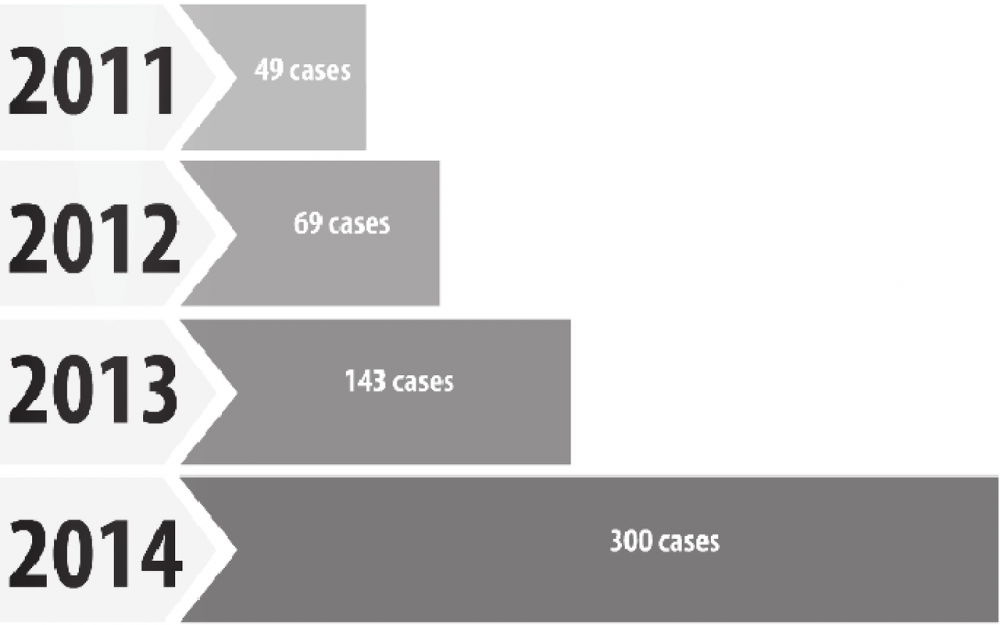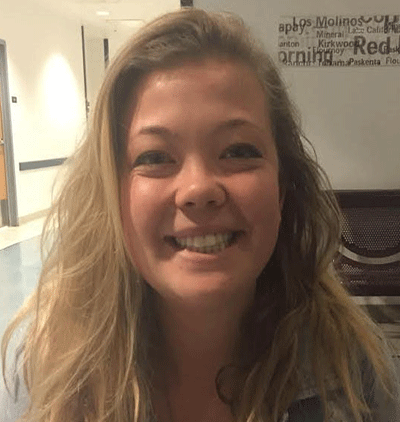
The number of gonorrhea cases being reported in Butte County has doubled during the last year and reached epidemic levels, according to a press release by the Butte County Public Health Department.
Three hundred cases of the sexually transmitted disease were reported throughout the county last year. Ages affected ranged from 13 to 62 years old.
In 2013, there were 143 reported cases, which was more than double the 69 reported in 2012. The Public Health Department classifies the outbreak as an epidemic because of the high rate of increase that has occurred in a such a short amount of time.
Gonorrhea is a bacterial infection that can be spread through oral, anal or vaginal sex. It can cause infections in areas like the genitals, throat and the rectum. If left untreated it can result in serious health problems, such as sterility.
Despite Chico having such a compact population of college students, less than half of the 300 cases were in people between the ages of 14 and 25. Less than half, however, still put numbers in the hundreds for the younger demographic.
One in two young people will contract an STD by the age of 25, said Lisa Almaguer, communications director for the Butte County Public Health Department.
County officials are working to get the word out about the epidemic and stop it from worsening any further.
A couple of projects the department has in store include: public service announcements, social media outreach and radio and television notices, Almaguer said.
“One method isn’t going to work,” she said.
It is important to use different methods to get the word out to different age groups. It is shocking how little people know and how strongly some people believe they won’t contract an STD, Almaguer said.
“People, especially kids, think they are invincible to stuff like that,” said Alex Horne, Chico State sophomore business major.
Some students have received a limited amount of sex education, in their own estimation.
“I went to a private Christian high school,” Horne said. “Sex was wrong.”
Some schools separate boys and girls and briefly cover the basics of sex education, but that often leaves students clueless about what contracting an STD like gonorrhea entails, said Jeff Guzman, sophomore.
Gonorrhea will usually be symptom-free, which is why it’s important to get tested. Symptoms usually include a burning sensation during urination and abnormal genital pain or discharge.
People who have had one or more partners are susceptible to gonorrhea. The Butte County Public Health Department recommends anyone at risk be tested and encourage any partners to get tested as well.
In Chico, nearly 20 clinic options are available for people to receive low-cost to free testing. For example, the public health center on Oleander Avenue offers same-day tests that are completely confidential.
Wearing a condom every time people are sexually active is the best way to prevent contracting STDs. Outlets such as condomfinder.org help people find locations where they can get condoms for free based on their zip codes.
Chico State’s Student Health Center and the Gender and Sexuality Equity Center provide condoms free of charge.
It is important that people who test positive notify their partners. For those who are too embarrassed to let their partner know they may have been exposed to an STD, outlets such as dontspreadit.com will send a free and anonymous message.
Any clinics that tests for STDs also offer a low-cost, one-time treatment method that usually is a single oral dose of antibiotics.
“If you are a sexually active person and you can’t wear a condom, talk with your partner and get tested,” Almaguer said. “You shouldn’t be having sex.”
Whitney Urmann can be contacted at [email protected] or @WUrmann on Twitter.










